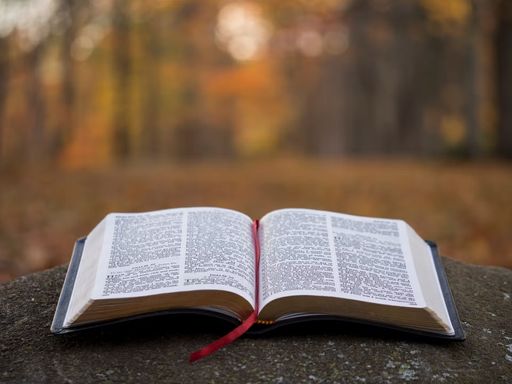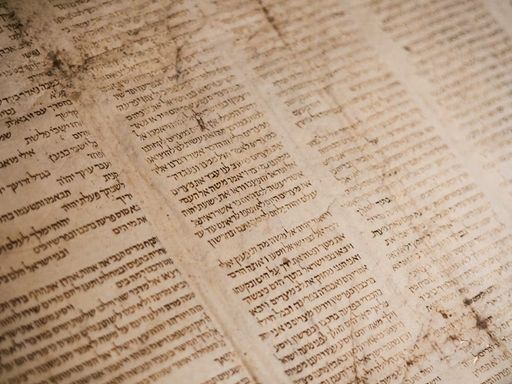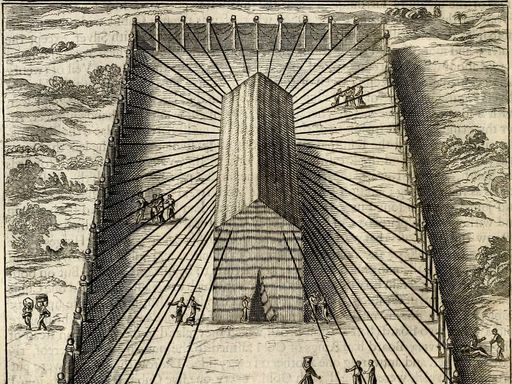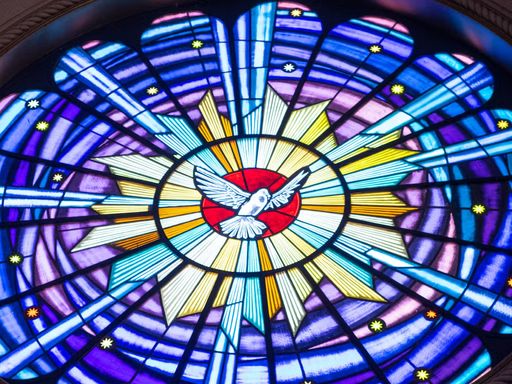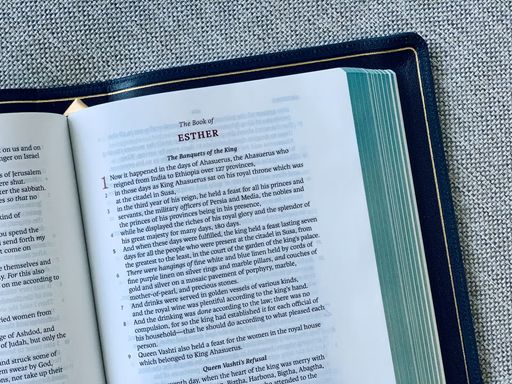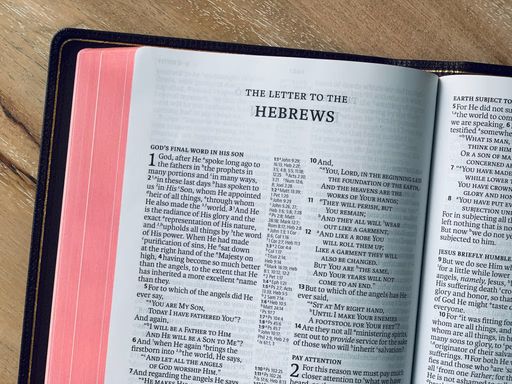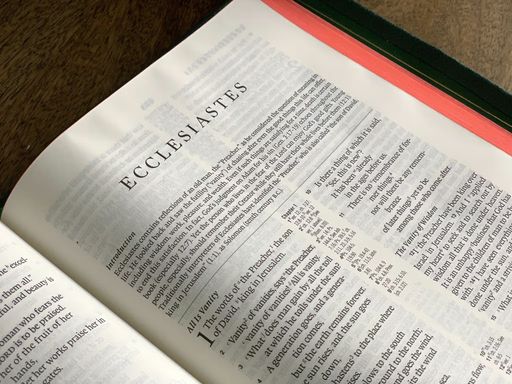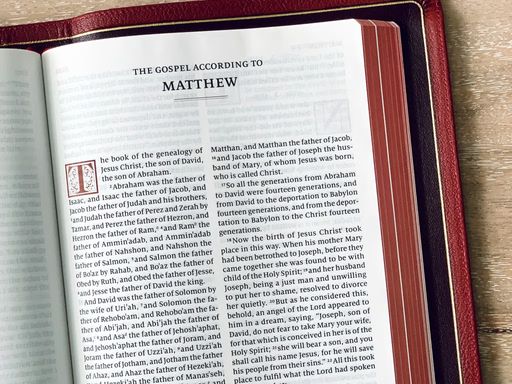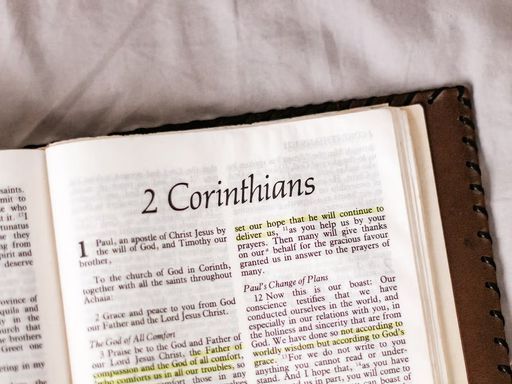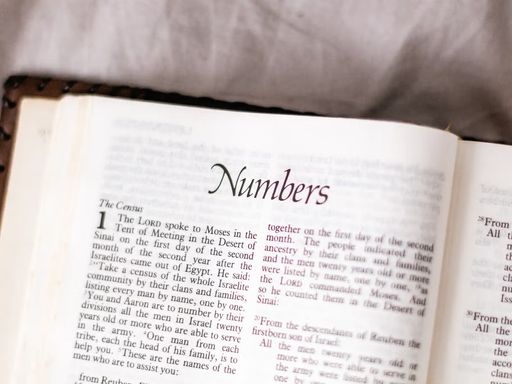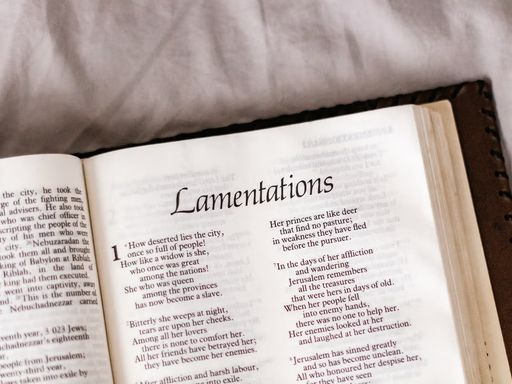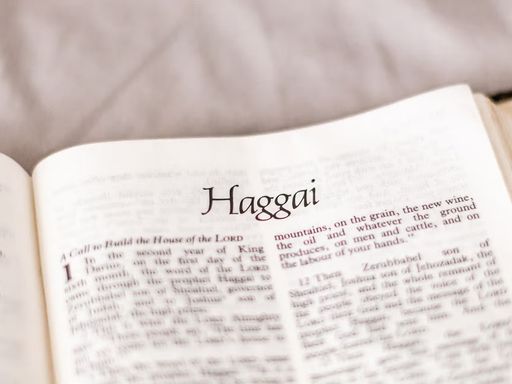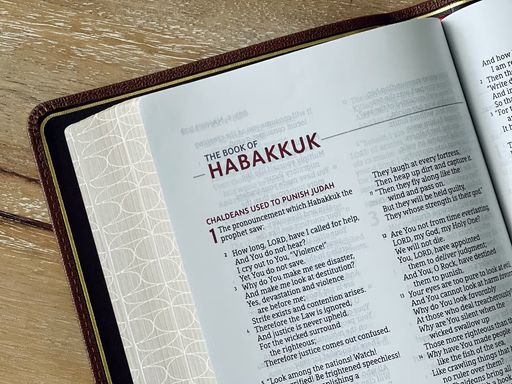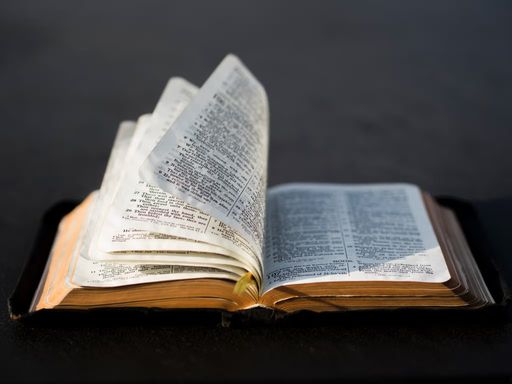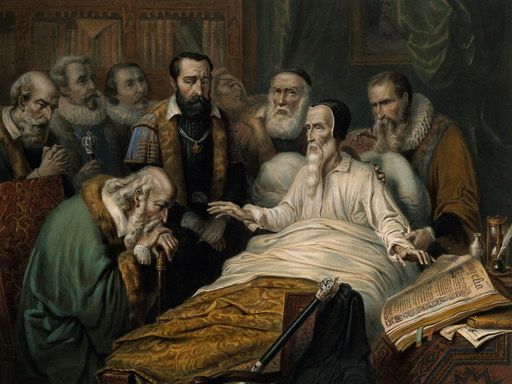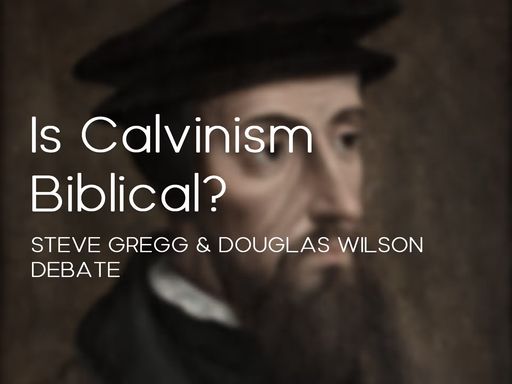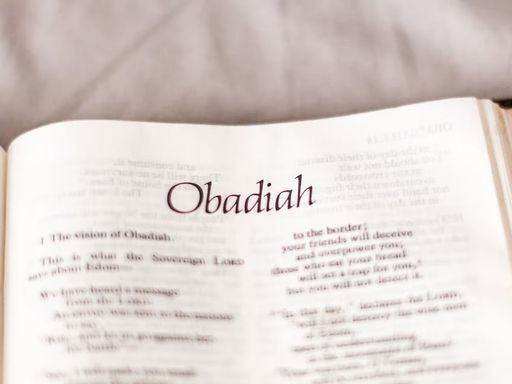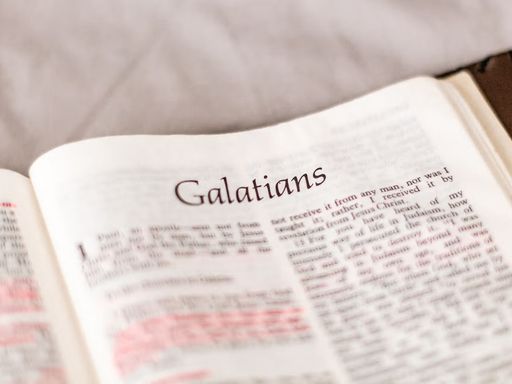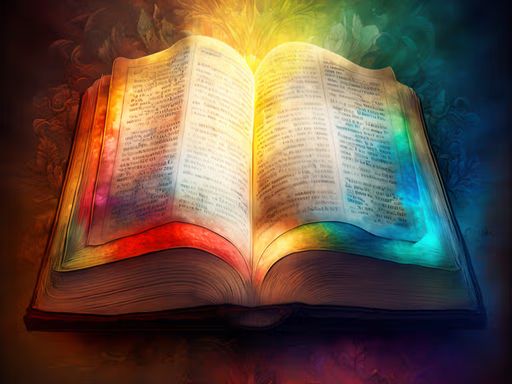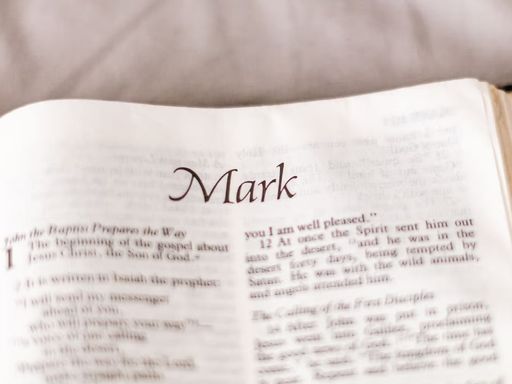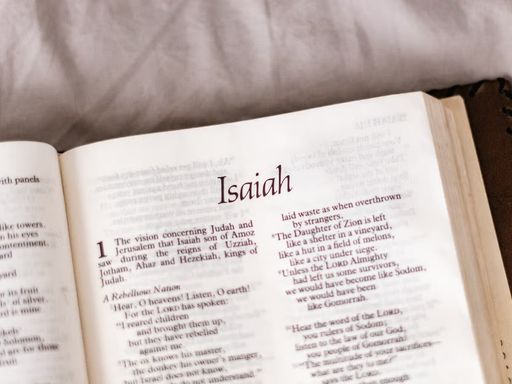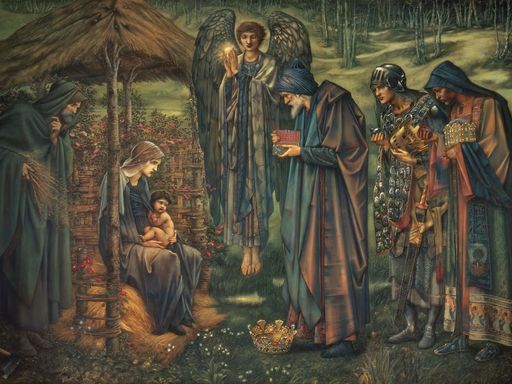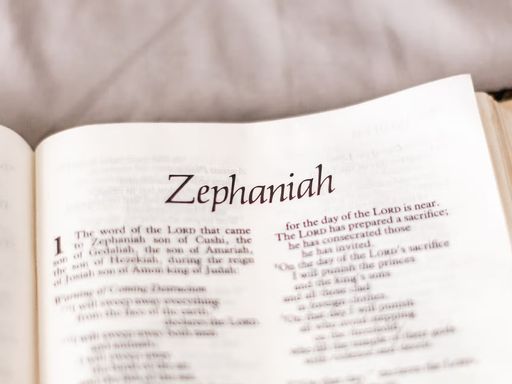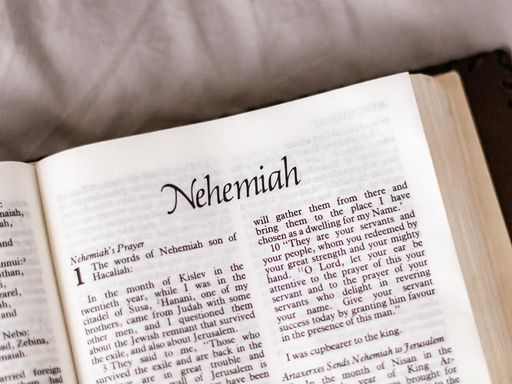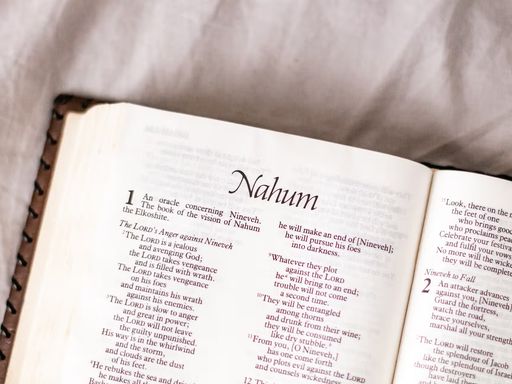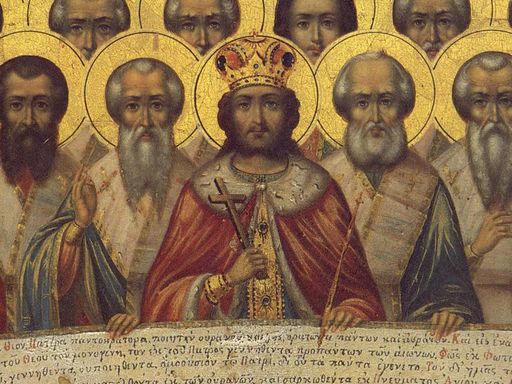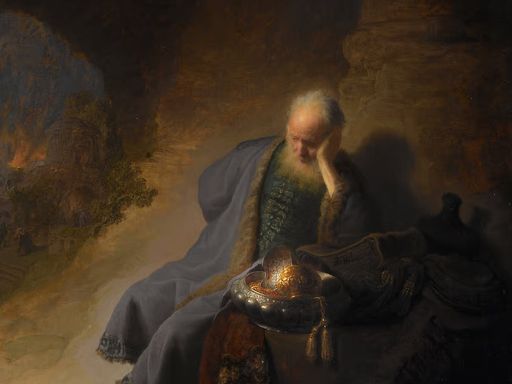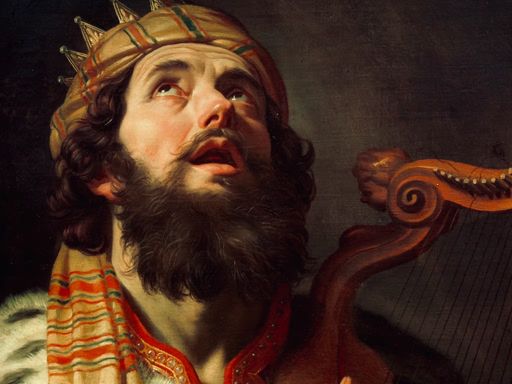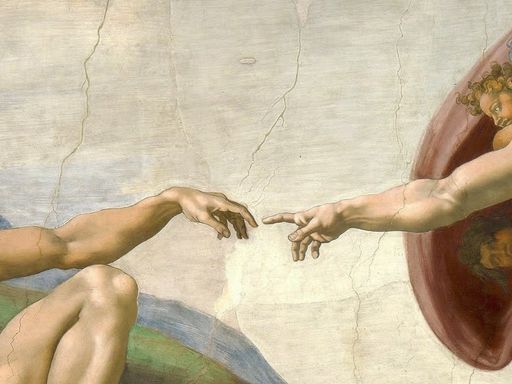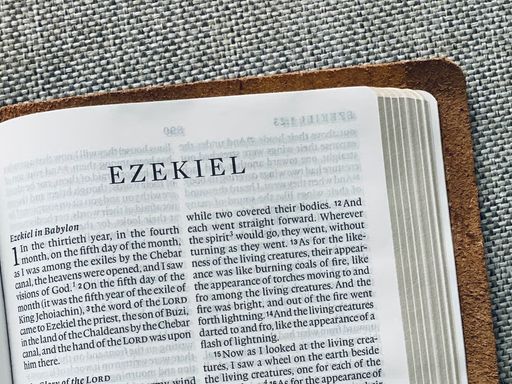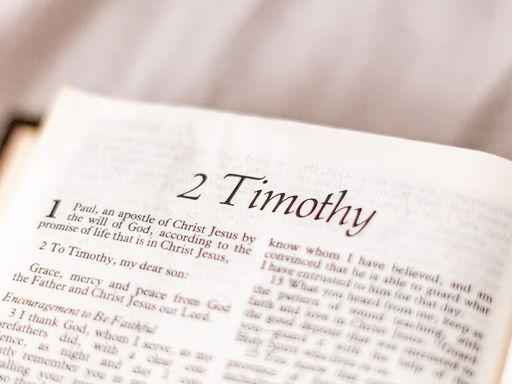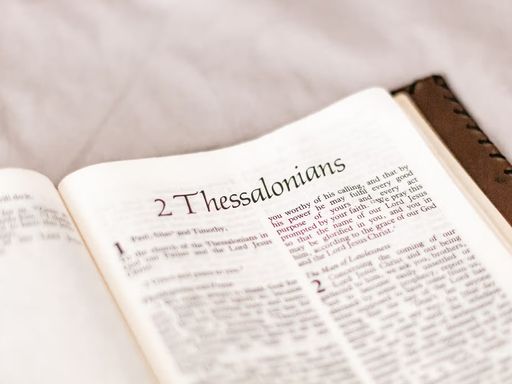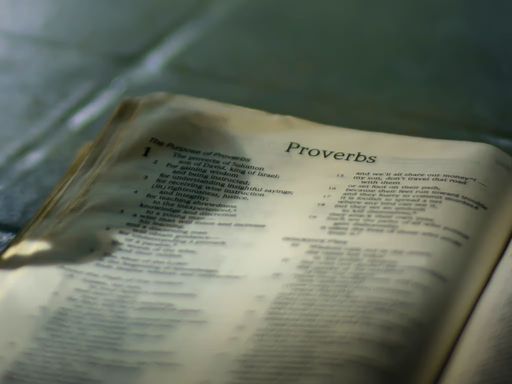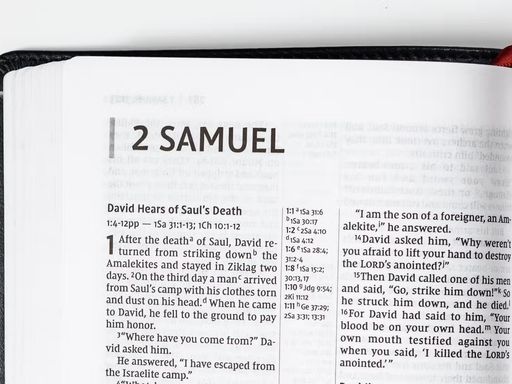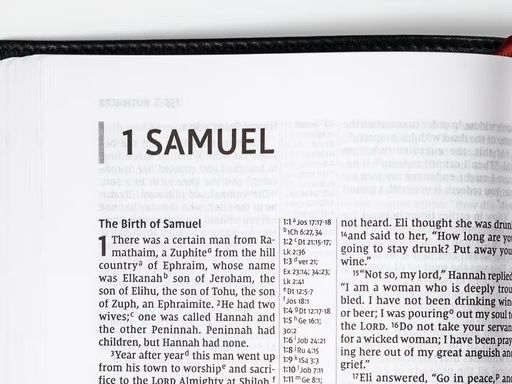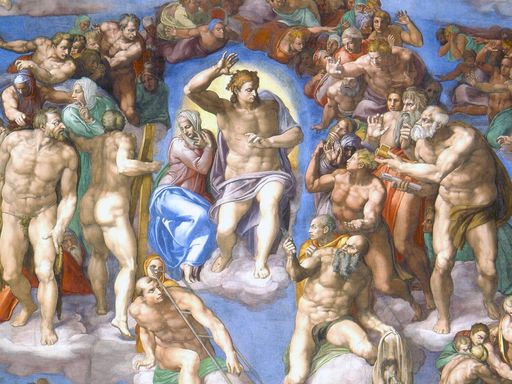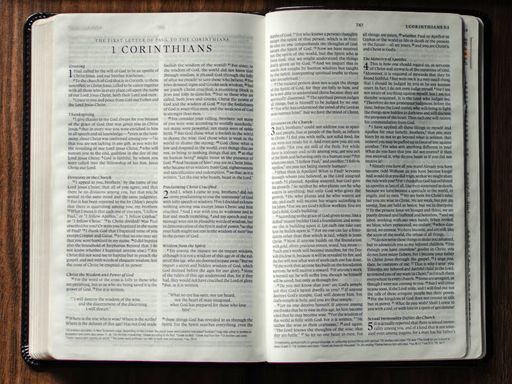
Genesis
Steve Gregg
Steve Gregg provides a detailed analysis of the book of Genesis in this 40-part series, exploring concepts of Christian discipleship, faith, obedience, and the sovereignty of God.

Canon of Scripture
Steve Gregg explains the significance of understanding the Canon of Scripture, which refers to the approved and authorized books. The Old Testament books were mostly written by prophets who received inspiration from God, while the New Testament books were written by apostles appointed by Jesus Chris

Bible Survey
In this Bible Survey by Steve Gregg, we learn that the Protestant Bible contains 39 books in the Old Testament and 27 books in the New Testament. The Old Testament spans almost 4,000 years of history from the creation of Adam to the birth of Jesus and is centered on the Abrahamic covenant. Additiona

Introduction to Penteteuch
In "Introduction to Pentateuch," Steve Gregg presents various arguments for and against Mosaic authorship -the belief that Moses wrote the first five books of the Old Testament. While the documentary hypothesis suggests that the Pentateuch was written by multiple authors from different Jewish tradit

Genesis Introduction
In this introduction to the book of Genesis, Steve Gregg discusses how it provides essential information about the beginning of everything, including the human race, and the origins of marriage, atonement, and human inventions. While some view the first eleven chapters of Genesis as mythological, Je

Genesis 1 (Part 1)
Steve Gregg provides a detailed analysis of Genesis 1, the summary of the creation story, and Chapter 2, which focuses on the creation of humans in the Bible. He emphasizes that the language and the meaning of some words used in Genesis 1 may vary. While there is ambiguity in the interpretation of s

Genesis 1 (Part 2)
In this discourse, Steve Gregg discusses the controversies surrounding the meaning of "days" in the Genesis 1 creation story. While a surface reading of the text suggests that the universe is only a few thousand years old, mainstream science indicates that it is billions of years old. Therefore, som

Genesis 1 (Part 3)
Steve Gregg provides an overview of various perspectives on the creation account in Genesis 1. He notes that the origin of the sun, moon, and stars is not universally agreed upon, and that the classification of animals in the Bible is based on ecological zones rather than scientific taxonomy. He dis

Genesis 1 - Spiritual Application
In this spiritual interpretation of Genesis 1, Steve Gregg proposes that the creation story has a dual purpose: to describe historical events and to depict heavenly realities. Quoting from both Old and New Testaments, Gregg points out that the original creation was made without resistance, unlike th

Genesis 2:1 - 2:3
In Genesis 2:1-2, God rested on the seventh day after creating the world, symbolically demonstrating that he was finished with his work. This laid the foundation for the Sabbath day, which is discussed throughout the rest of the Bible. The Sabbath remains a symbol of resting in God's finished work,

Genesis 2:4 - 2:20
In this discussion of Genesis 2:4-2:20, Steve Gregg sheds light on the different account of the creation story in the Bible. He explains that the past perfect tense in Hebrew can make it seem like events happened in a different order than they did. The depiction of the creation of man and his assign

Genesis 2:21 - 2:25
In this discussion, Steve Gregg highlights the importance of Genesis 2:21-2:25 in understanding the sanctity and purpose of marriage. He emphasizes the equal and submissive roles of husband and wife and urges Christians to prioritize obeying God over societal norms. Moreover, Gregg cautions against

Genesis 3:1 - 3:6
In this analysis, Steve Gregg delves into Genesis 3:1-6, exploring the multitude of themes within the passage. He notes the role of pain as an alarm system, the potential pitfalls of altering God's word, and the dangers of idolizing one's partner. He also highlights the internal urges for temptation

Genesis 3:7 - 3:15
In Genesis 3, Eve eats from the tree of knowledge, causing her and Adam to feel shame and a desire to cover themselves. God calls out to them, and while Adam confesses, he also shifts blame onto Eve, highlighting the tendency for individuals to deflect responsibility for their sins. The Fall of Man

Genesis 3:16 - 3:24
In this exposition, Steve Gregg discusses the biblical narrative from Genesis 3:16 to 3:24, emphasizing the devastation that sin has brought upon humanity and the importance of understanding biblical principles for family life. He argues that embracing sacrificial love and submission as a team, rath

Genesis 4:1 - 4:17
In this analysis of Genesis 4:1-17, Steve Gregg explores the conflict between Cain and Abel and the repercussions of Cain's disobedience. While God demonstrated favor towards Abel's offering, Cain's anger towards God's rejection of his offering suggests entitlement to God's acceptance. The mark that

Genesis 4:18 - 5:32
In this exposition of Genesis 4:18-5:32, Steve Gregg explores the genealogy of Adam and the significance of the individuals mentioned within. He discusses the murder of Abel by Cain and the subsequent appointment of Seth, who became the new male heir of Adam and Eve. The inclusion of multiple wives

Genesis 6:1 - 6:8
In Genesis 6:1-8, there is a debate over whether the "sons of God" mentioned are angels or godly men. Some suggest that angels married humans and gave birth to giants, while others view the "sons of God" as a godly community of humans. The passage highlights the breakdown of godly families and leade

Genesis 6:9 - 8:22
In this discussion, Steve Gregg reviews the events described in Genesis 6:9 through 8:22. He explores the story of Noah and the great flood, discussing the dimensions of the ark, the animals on board, the length of the flood, and where the ark came to rest. Gregg also examines the debate over whethe

Genesis 9:1 - 9:7
In this discourse, Steve Gregg discusses the biblical account of Genesis 9 and how it relates to various topics such as the end times, the commandments given to Noah and his sons, and the role of government in punishing criminals. Gregg highlights how the story of Noah and the flood symbolizes unive

Genesis 9:8 - 10:32
Steve Gregg discusses Genesis 9:8 - 10:32, which describes God's covenant with Noah and his descendants not to destroy the earth with a flood again. The covenant involves certain obligations from humanity, such as not eating blood or killing others, in exchange for fulfilling God's promises. The pas

Genesis 11
Steve Gregg's discussion of Genesis 11 explores the story of the Tower of Babel, where people attempted to build a tower reaching the heavens to maintain control rather than being dispersed across the earth. God dispersed them and confused their language, creating different languages and nations. Gr

Genesis 12:1 - 12:9
Genesis 12:1-9 introduces Abram and the Abrahamic covenant, which is mentioned throughout the Bible and seen as the subject of the scripture. While Abram's family background and journey to the land of Canaan are discussed, Steve Gregg argues that the promise made to Abram is fulfilled in Christ, and

Genesis 12:10 - 13:18
Abraham (then named Abram) faced a test of faith when he put himself and his wife in a compromising position by telling Egypt that Sarah was his sister to protect himself during a famine. Despite his struggle with faith, Abraham became a model for Christians and a prototype for disciples to follow.

Genesis 14
In Genesis 14, a war erupted between four kings and five kings in the region of the Dead Sea, including the cities of Sodom and Gomorrah. During the war, Abram’s nephew, Lot, was taken captive, prompting Abram to mobilize his own servants to pursue and defeat the captors. Through the use of the term

Genesis 15:1 - 17:8
In this analysis of Genesis 15:1-17:8, Steve Gregg explores the concepts of Christian discipleship and the Abrahamic covenant. The text discusses the burden that Abram carried and the delay in God's appearance, which may have symbolized the delay in delivering the people of Egypt and bringing Abram'

Genesis 17:9 - 18:33
In this passage from Genesis, Abraham's covenant with God is emphasized as a defining feature of God's chosen people, rather than just biological lineage. The circumcision of every male child in Abraham's household is also stipulated as a sign of the covenant. The story of Yahweh's visit to Abraham

Genesis 19 - 20
In Genesis 19-20, we see the story of Sodom and Gomorrah's destruction, highlighting the importance of hospitality and the judgment of wickedness in God's eyes. Lot's compromises and choices led to the loss of his family members and the moral corruption of his daughters. We also see Abraham make a m

Genesis 21 - 22
In Genesis 21-22, the faith and obedience of Abraham and Sarah are put to the test. Sarah gives birth to Isaac in her old age, which results in the departure of Hagar and Ishmael. Abraham is then commanded by God to offer Isaac as a burnt offering on Mount Moriah, a test of faith which Abraham ultim

Genesis 23 - 24
In Genesis 23-24, Abraham's journey to find a burial plot for Sarah and a wife for Isaac is told. Through Abraham's acknowledgement of his status as a stranger and advice given to modern Christians in 1 Peter 2:11, the theme of pilgrimhood and the distinction between the values and conduct of the ch

Genesis 25
In "Genesis 25," Steve Gregg discusses the significance of the prophecy regarding the destinies of two nations, Israel and Edom. He explains that being part of the chosen people of Israel did not guarantee individual salvation, and emphasizes the importance of valuing spiritual privileges over physi

Genesis 26 - 27
In this exposition of Genesis 26 - 27, Steve Gregg highlights the shortcomings of the biblical characters Isaac, Esau, Rebecca and Jacob, all of whom make mistakes and are not fully virtuous. Despite their misdeeds, the sovereignty of God is ultimately accomplished, as evidenced by the passing down

Genesis 28:1 - 29:30
In Genesis 28:1-29:30, Rebecca advises Jacob to find a wife and sends him away to distance him from Esau's threats. Isaac blesses Jacob and instructs him to choose a wife from his mother's family. Jacob has a prophetic dream of a ladder reaching heaven, and this passage alludes to God's plan for Gen

Genesis 29:31 - 31:16
Steve Gregg provides a detailed analysis of Genesis 29:31 - 31:16, discussing Jacob's marriages to Leah and Rachel and their competition for having children. The text emphasizes the significance of each child's name, often linked to God, and delves into Jacob's knowledge of livestock breeding and me

Genesis 31:17 - 31:55
In this passage, Jacob leaves Laban's house after realizing his uneasy relationship with Laban's sons. He experiences a dream about returning to Bethel, which he shares with his wives. Rachel steals household goods, which she hides in a camel's saddle. Jacob and Laban confront each other, and they m

Genesis 32 - 34
In Genesis 32-34, Jacob prepares to meet his estranged brother Esau after years of rivalry. He wrestles with a divine being, is renamed Israel, and reconciles with Esau, who surprisingly welcomes him with warmth. However, the story of Dinah's rape by the prince of Shechem and her brothers' violent r

Genesis 35 - 37
In Steve Gregg's exposition of Genesis 35-37, we see Jacob's return to the Promised Land and the introduction of Joseph as the main character. Jacob fulfills a promise to God at Bethel and purifies his household of foreign gods. Reuben's controversial act of sleeping with his father's concubine puts

Genesis 38 - 39
In "Genesis 38-39", Steve Gregg discusses the interruption in the story of Joseph by detailing the story of Judah's family and Levirate marriage, emphasizing the value of children in Hebrew culture. The chapter also highlights the integrity and conscience of Joseph when he resists Potiphar's wife's

Genesis 40 - 42
In Genesis 40-42, the story of Joseph continues to reveal God's providence and Joseph's integrity. Joseph's imprisonment leads to him being trusted by the head of the prison and put in charge of the other prisoners, and his ability to interpret dreams leads to his eventual release from prison and ap

Genesis 43 - 47
In "Genesis 43 – 47", Steve Gregg discusses the stories of Joseph and his brothers during the famine in Egypt. The brothers return to Egypt with Benjamin and are tested by Joseph to see if they have repented for their past transgressions. Joseph forgives his brothers and allows them to bring their f

Genesis 48 - 50
In this presentation, Steve Gregg explores the final chapters of Genesis, which focus on the family business being taken care of before Jacob's death. Jacob blesses his sons, who become the heads of the twelve tribes of Israel, but the interpretation of the blessings is somewhat difficult to underst
